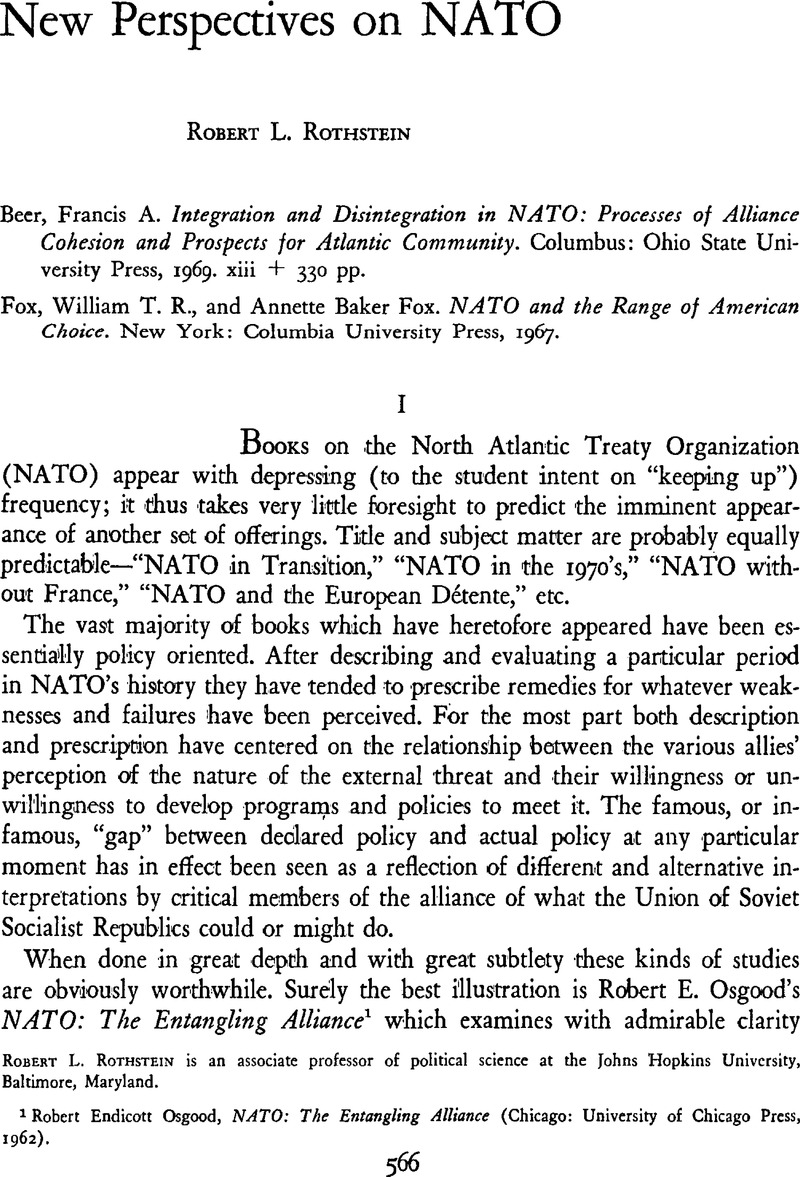No CrossRef data available.
Article contents
New Perspectives on NATO
Published online by Cambridge University Press: 22 May 2009
Abstract

- Type
- Review Article
- Information
- Copyright
- Copyright © The IO Foundation 1970
References
1 Osgood, Robert Endicott, NATO: The Entangling Alliance(Chicago: University of Chicago Press, 1962)Google Scholar.
2 Kissinger, Henry A., The Troubled Partnership: A Re-appraisal of the Atlantic Alliance(New York: McGraw-Hill Book Co. [for the Council on Foreign Relations], 1965)Google Scholar.
3 It would also be possible to analyze NATO from another point of view—as a “bargaining forum” for certain kinds of diplomatic interchanges between the allies. One might, for example, attempt to develop propositions about the role of small powers or middle powers in multilateral alliances. One might also be able to draw some interesting contrasts between the political process in this kind of alliance and that which prevails in other international entities (e.g., the United Nations, the Arab League, etc.).
4 It has become dangerous to use the words “theory” or “theoretical” in most contexts these days since there is so much debate about what they do or should mean. “Theory” is used here in a loose—but convenient—sense to imply an enterprise whose purpose is the derivation of hypotheses which can be empirically tested and which are aimed at accepted explanations of political phenomena. In a strict sense, it would of course be illegitimate to describe something as “integration theory” when in fact it is only an intellectual frame of reference or a classification scheme or a research strategy. But its proponents do use the term, and it seems easier to accept their terminology than argue the point endlessly and fruitlessly.
5 The Little Entente in the 1930's actually enunciated some propositions which would have implied true integration in the military and political spheres, but the alliance did not survive long enough to put them into effect.
6 See the essays in Rosenau, James N. (ed.), Linkage Politics: Essays on the Convergence of National and International Systems (New York: The Free Press, 1969) for an attempt to develop some frame of reference within which to deal with the obviously increasingly important links between different levels of the international systemGoogle Scholar.




